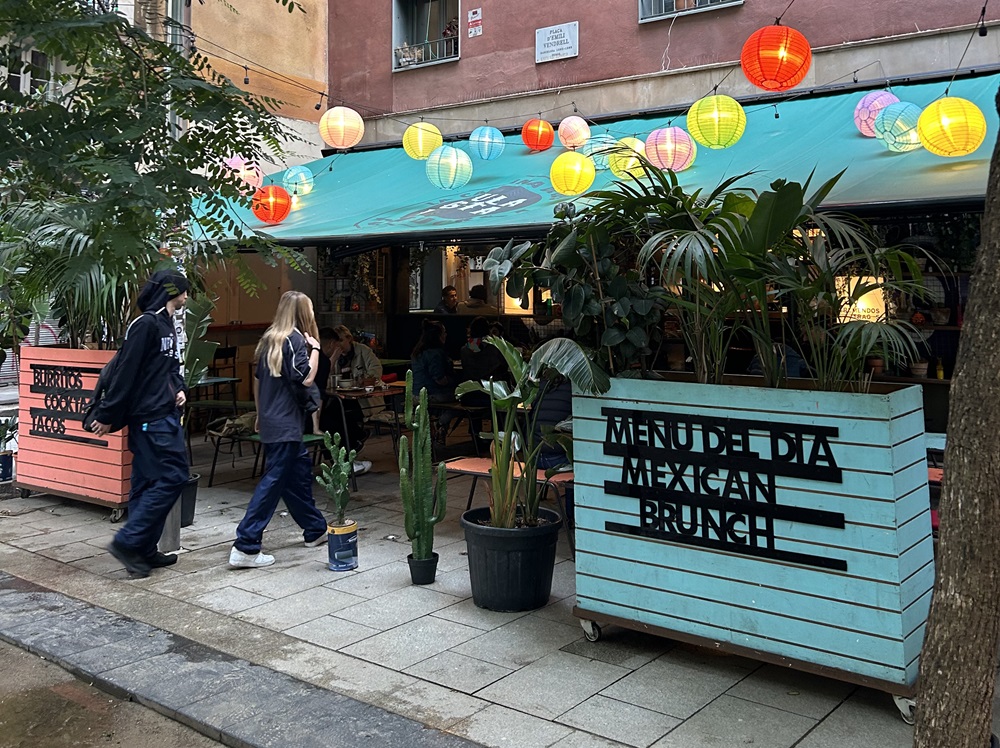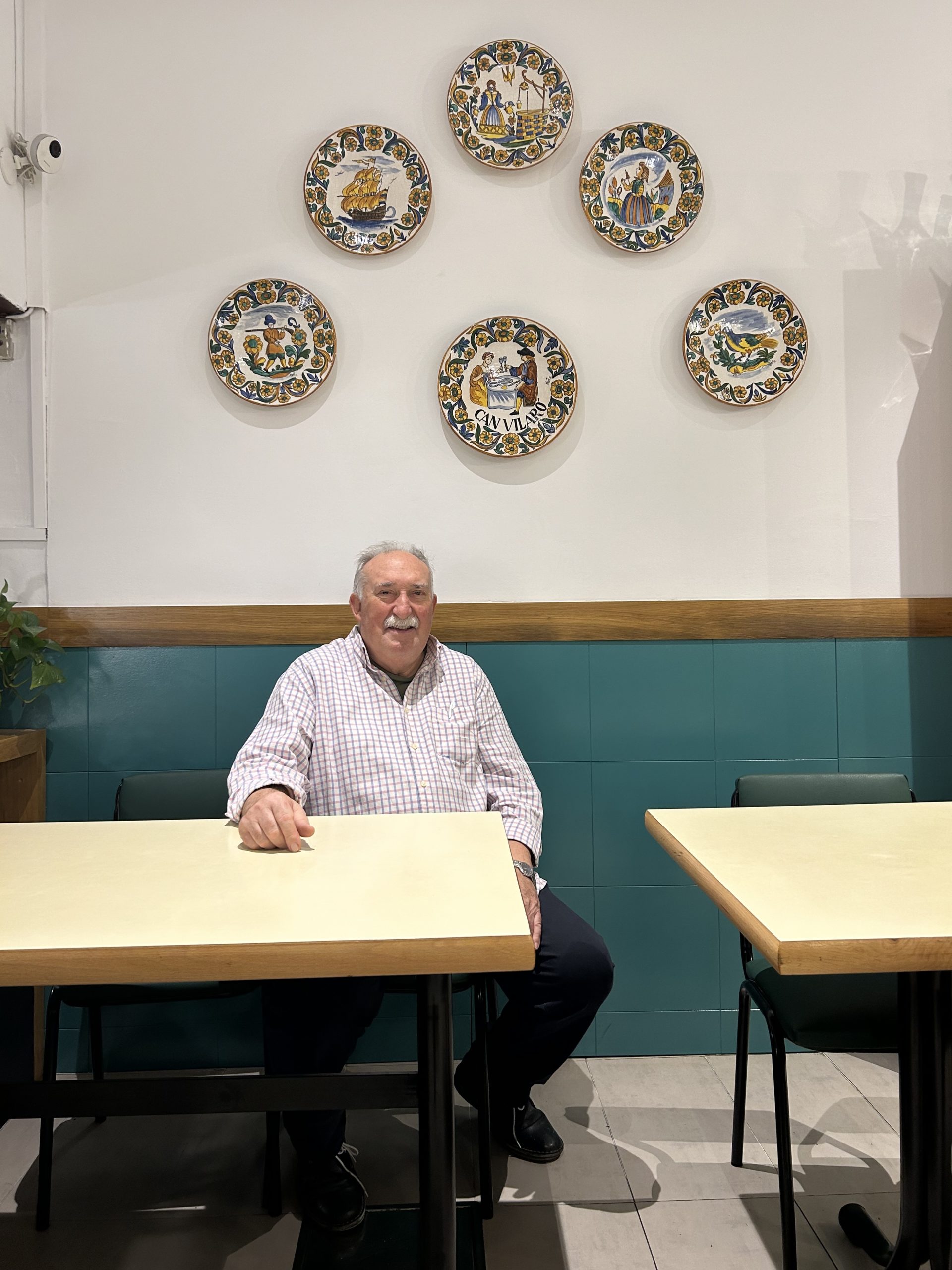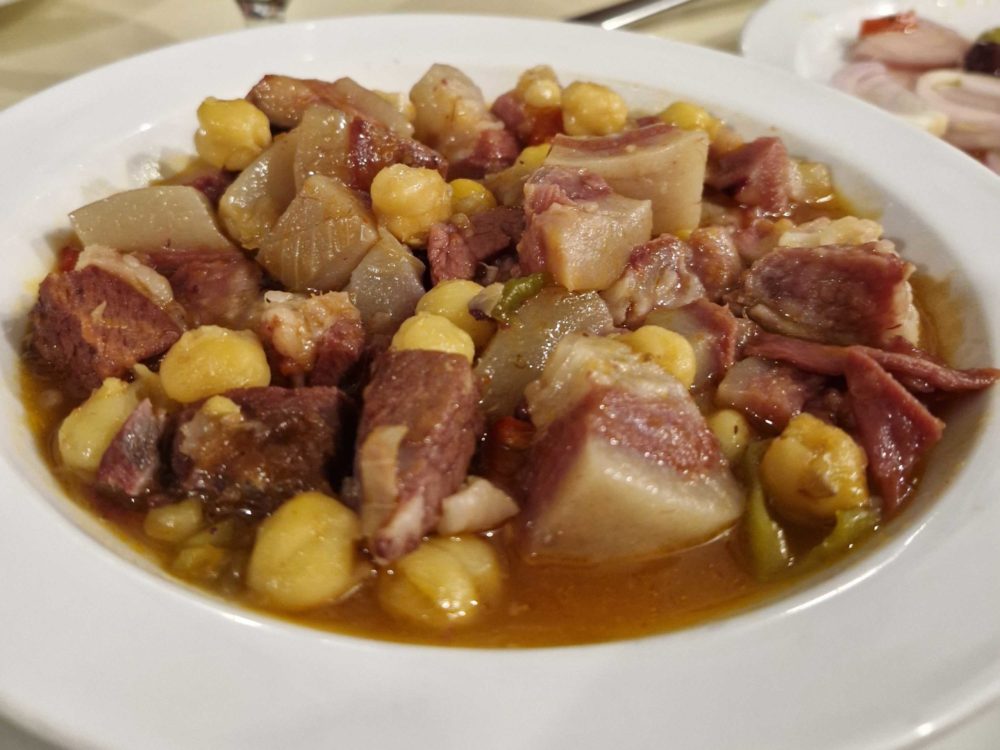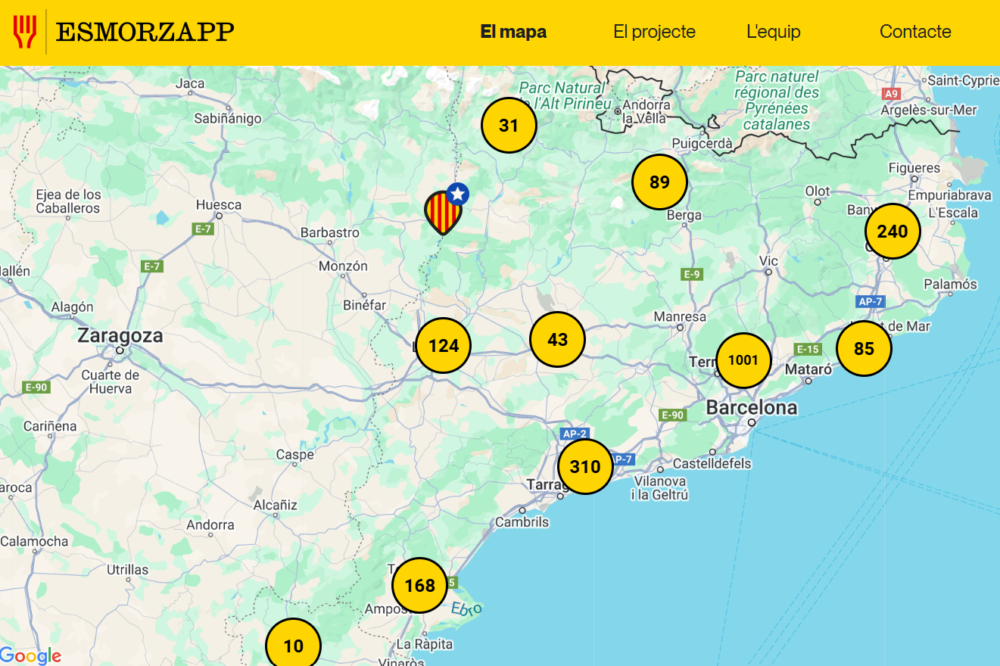How breakfast has become the new battleground against mass tourism in Barcelona

Luke James, Barcelona
From a small bar opposite the modernist Sant Antoni market in Barcelona, three generations of the Vilaró family have been serving traditional Catalan breakfast, known as esmorzar de forquilla, to hungry stallholders.
“We have been here for 57 years and we’ve always lived off esmorzar de forquilla,” said Sisco Vilaró. “It was started by my parents, now it’s me and my daughters.”
“A person who works in the market has to wake up very early in the morning and so they can’t just eat a sandwich, they need a proper breakfast.”
Just around the block from Can Vilaró is Bubbles and Brunch. Opened last year to cater for the growing appetite for pancakes, avocado toast and eggs benedict, the restaurant has received positive reviews from food influencers on TikTok.
Its clientele is a mix of “Americans, tourists, and locals that live here”, said the owner, who is originally from London but didn’t want to be named.
“We do English breakfast,” she said. “We do Turkish breakfast. We do Ukrainian breakfast. We do a selection of sandwiches. It’s brunch – people like it.”
While only 350 metres separate the two restaurants, they are culturally a world apart.
Stark contrast
Vilaró didn’t know much about brunch beyond the fact “someone does it down the road” and the owner of Bubbles and Brunch didn’t know what a traditional Catalan breakfast was.

It’s this stark contrast in a concentrated space which has seen the breakfast table become the latest fault line in relations between born-and-bred ‘Barcelonins’ and the city’s increasing international population.
“We’ve been worrying about losing our Catalan cultural identity for many years,” Albert Molins told Nation.Cymru at the offices of the La Vanguardia newspaper where he edits the society section.
“The easy culprit here is brunch, because it’s like the invasive species, you could say.”
Molins and likeminded local foodies are fighting back through a campaign promoting the traditional Catalan esmorzar de forquilla, which literally means ‘fork breakfast.”
Some favourites, such as ‘botifarra amb mongetes’ (sausage and beans), would be familiar to Welsh diners. And, like a full Welsh, there’s also seafood on the menu, in the form of salted cod called ‘bacallà’.
Offal
A tougher sell, especially to tourists and younger locals, tends to be the range of offal-based dishes like ‘tripa a la Catalana’ (stewed tripe) , ‘cervellets a la romana’ (battered lamb’s brain) or ronyons al xerès (kidneys in a sherry sauce).
These slow cooked dishes mean they are rarely prepared at home, but instead served with red wine in small, family run restaurants like Can Vilaró or in the open air as part of fairs or markets – often as a more substantial second breakfast for those who only have time for a coffee and slice of bread before leaving home.

Molins’ campaign began life during the pandemic as a way of helping these small establishments to survive the lockdowns.
Its website and application signposts hungry people to more than 2,500 cafes and restaurants offering a traditional breakfast in Catalonia, Valencia and the Balearic Islands.
Expats
More recently it has become a rallying point for Catalans concerned about the impact of mass tourism and an expanding community of expats on local culture.
“It didn’t start as a very thought through campaign,” said Moulins. “But now it is. Now we’re going into battle.”
The campaign has succeeded in creating a veritable moral panic about Barcelona’s brunch boom, with everyone from the national broadcaster to hipster podcasters chewing over the effects of the trend on local culture in recent weeks.
“Globalisation is everywhere on our streets,” said Alba Riera, presenter of the Eva podcast. “Our cities are fighting to preserve their identities between the empanadas, eggs benedict, and smash burgers. This has created a nostalgia for local cuisine and low prices – more esmorzar de forquilla and less brunch.”
Even before the campaign, tensions had spilled into the Barcelona’s restaurants. This summer a number of tourists eating on city centre terraces were squirted with water pistols during a protest over the impact on the cost of living for residents.
Soaring rents
While rents are soaring, locals say they don’t feel the benefit of income tourists are meant to bring. A common complaint among stallholders at Barcelona’s famous La Boqueria market is that it’s full of tourists who buy little apart from cheap fruit juices which make for colourful photos on social media.
In response to the growing discontent among locals, the Catalan government doubled the maximum tourist levy last week from 4 Euro a night to 8 Euro a night.
Molins insists the changing face of Barcelona is not the fault of tourists but of the model of tourism that has been chosen by Catalans themselves.
“It’s a model of sun and sea, people who don’t want to complicate their lives at meal times,” he says. “People who, if they can eat the same as at home, all the better. So that’s what restaurants here cater for. There’s not a Catalan offer.”
The journalist is pushing for the local authorities to promote esmorzar de forquilla when Catalonia becomes Unesco’s world region of gastronomy next year. “If the people who come to visit know better the place they’re visiting, that would improve things,” he says of the tensions.
Much more problematic are the expats, according to Molins. “People who live here, but live here totally detached from the reality of what Barcelona is.”
“Many don’t even speak Spanish let alone Catalan,” he adds. “They have no problem paying 1000 Euros in rent because their salary is from Wall Street. Those people are the problem.”
There is work underway to reach out to an international audience, with developers exploring the introduction of different languages to the app.
It is currently only available in Catalan, giving away the campaigns’ real target: Barcelona natives who don’t take pride in their national cuisine.
“You’re not in Brooklyn, you’re Catalan,” reads the front of a t-shirt recently produced by the campaign.
Olympic Games
American-inspired cuisine has been gaining ground in Barcelona since the Olympic Games hosted by the city in 1992 and the wave of tourism that followed.
“Brunch is a good example of what’s been happening,” says Molins. “We believe that what comes from outside is better, that it’s more cosmopolitan to eat brunch or sushi or thai than to eat a fricando or capipota.”

The real source of the problem predates brunch boom by more than a century though, he admits, stretching back the universal exposition in Barcelona in 1888.
“Esmorzar de forquilla comes from traditional working class cooking,” said the campaign founder. “It was born in the 19th century in fondes de sisos, establishments where normal people went to eat a big, cheap meal.”
But after the universal exposition, “the bourgeoisie of Barcelona wanted French food and forgot about Catalan traditions,” he added. Even today, Catalonia’s best known chefs don’t earn their Michelin stars by cooking their national cuisine, laments Molins.
As well as class prejudice, the humble esmorzar de forquilla faces other challenges as it attempts a ‘remuntada’ in Barcelona. It’s more commonly associated with the countryside, which Molins insists that’s a misconception, and older men, which he doesn’t deny.
“I am 55 and when I go for breakfast I’m not saying I’m the youngest but almost,” he says. “Today young people associate eating with leisure and entertainment, and showing off how their life is. In that context, brunch is better. Brunch provides better Instagram photos.
“There’s also a gender problem. It’s a very masculine thing. It’s a reflection of the society we live in. The chores and domestic tasks aren’t split evenly.”
Emotions
It’s clear though that by picking a fight with brunch, Molins and his fellow campaigners have succeeded in stirring the emotions of their compatriots about their national cuisine.
So far, the website has been used four million times and the application has been downloaded 50,000 times.
Such is the momentum behind the campaign that there has even been evidence of some Barcelona cafés rebranding brunch-style menus as esmorzar de forquillla.
Brunch was being advertised outside one restaurant in the central Raval district, but its owner told me: “We don’t do brunch exactly. We do an esmorzar de forquilla Mexican.”
At Can Vilaró, owner Sisco has noticed that the dishes he’s been serving for decades are “on trend now.” “A lot of people have come with their mobile in their hands saying I want the capipota, I want this, I want that,” he reports.
Around the corner at Bubbles and Brunch, the owner hasn’t heard about the campaign or noticed any push back. “There’s going to be a clientele for different things,” she says. “Each to their own.”
Molins hopes the campaign might help old and new residents of Barcelona break bread together more regularly. For now at least, both the traditional and the new look set to continue existing side-by-side, without either one really knowing it.
“We’ve made brunch the scapegoat because it’s the perfect enemy,” said the journalist. “But it’s true that, in a city like Barcelona, there’s space for everything.”
Support our Nation today
For the price of a cup of coffee a month you can help us create an independent, not-for-profit, national news service for the people of Wales, by the people of Wales.






Someone once described Spanish food as “something greasy on a small plate”. I wouldn’t beg to differ.